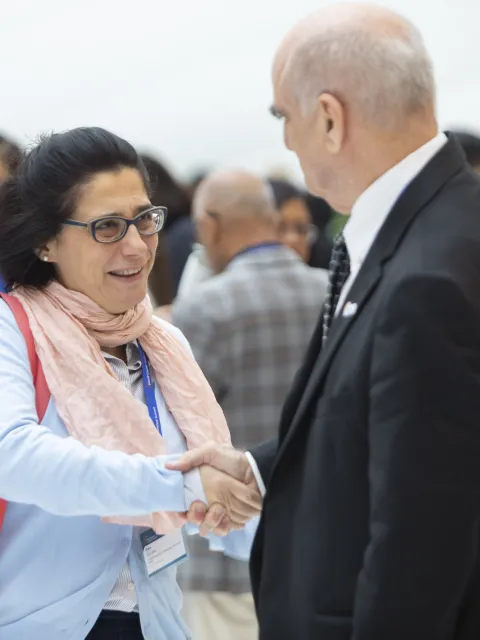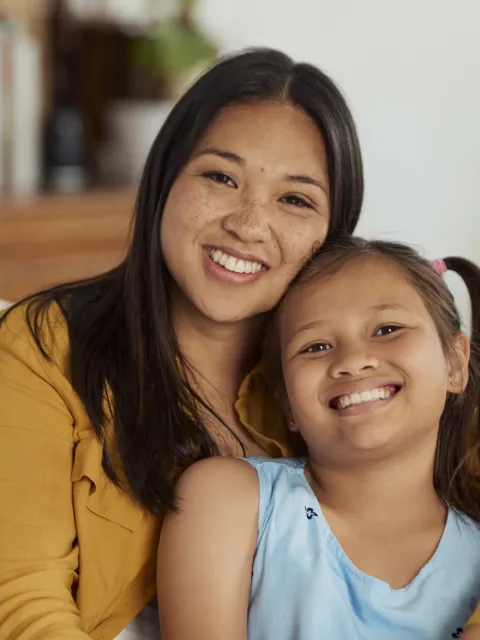Providing cancer care to refugees in Uganda
Uganda’s progressive policies towards refugees ensure that they are provided the same healthcare as Ugandans. There are many challenges, however, with respect to cancer care in the country.

Uganda is one of the countries in the world that hosts the most refugees – 1.5 million, the largest number of any country in Africa. Most are from South Sudan and the Democratic Republic of Congo (DRC).[1]
People fleeing conflict and persecution arriving in Uganda are registered at several reception centres across the country and receive humanitarian assistance before being relocated to one of the refugee settlements, where more than 90% of them live.[2]
Uganda has an admirable history of hosting refugees, also welcoming 2,000 from Afghanistan before they were relocated to the US. Uganda’s progressive policies have been recognised internationally, as refugees are guaranteed the right to work and freedom of movement, as well as the same social services, free primary education and healthcare as Ugandans.[3]
“The primary challenge with respect to assisting refugees is the language barrier, as they come from Sudan, Congo, Somalia… But they receive the same quality of care as anyone else, as long as they have been registered and possess documentation.”
– Dennis Olodi, Acting Executive Director of the Uganda Cancer Society
Cancer services in Uganda are concentrated in one national treatment centre, the Uganda Cancer Institute, in Kampala, the capital city, located in the south of the country. Recognising the difficulties that this poses for remote populations, and to increase access to cancer services, the government is looking to decentralise by setting up two regional referral centres, according to Dennis Olodi, Interim Executive Director of the Uganda Cancer Society (UCS), a UICC member organisation that coordinates a network of civil society organisations in Uganda working in cancer control. UCS was one of the first organisations to be part of UICC’s Cancer Advocates programme.
Mr Olodi explains that the primary concern with respect to the cancer burden in Uganda is the fact that cancers are diagnosed at advanced stages. This is due, on the one hand, to a lack of knowledge of the early signs of symptoms of cancer, even among healthcare workers; on the other, the fact that there are only a few basic screening programmes operating in the country. The Uganda Cancer Society is deeply invested in widely spreading more information on cancer and organising regional screenings with its member organisations.
“Many are also not aware of cancer risks – there is a lot of information about HIV and malaria, for instance, but not about cancer, and this is a limiting factor in terms of treatment but also data collection. We simply don’t know what the cancer burden is, only how many patients are registered with the Uganda Cancer Institute,” says Mr. Ololdi.
"In addition to language barriers and insufficient knowledge about cancer, we also see risky behaviours – such as a high level of sexual activity even among younger populations – and a lack of health-seeking behaviour, which increases risks of disease. Certain cultural practices can also act as barriers, for instance when a woman relies on a man’s approval to seek care and the man – her husband, father, brother or other ‘guardian’ – does not allow her to be examined by a male doctor.”
– Dennis Olodi, Acting Executive Director, UCS
The Uganda Cancer Society and its members have engaged in community-level activities, including providing screening services, English language classes to the younger generation, and helped to raise awareness and knowledge about cancer, healthy behaviours and care.
To help finance aid to refugees, Uganda receives funds from UNHCR, the United Nations refugee agency, with 70% going directly to the refugee settlements and 30% to help alleviate pressure on the country’s infrastructure (health, education and other services). The continuous influx of displaced people, including 60,000 from Sudan and DRC since January 2022 – most in the past three months – have nevertheless placed additional pressure on education, food, shelter and health centres. UNHCR has issued the Uganda Emergency Appeal, calling on the international community to increase funding.
___________________________
[1] ACAPS, 24 June 2022: https://www.acaps.org/country/uganda/crisis/refugees.
[2] Reliefweb/UNHCR: https://reliefweb.int/report/uganda/uganda-country-refugee-response-plan-emergency-appeal-april-june-2022.
[3] The Conversation, “Uganda has a remarkable history of hosting refugees, but its efforts are underfunded”, 26 August 2021: https://theconversation.com/uganda-has-a-remarkable-history-of-hosting-refugees-but-its-efforts-are-underfunded-166706
Last update
Monday 05 December 2022
